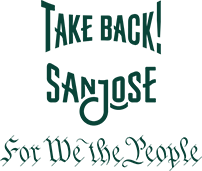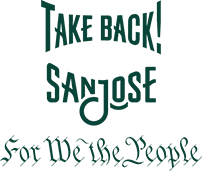We have come up short in the race for San Jose D3 City Council. Congrats to my opponent and eternal hugs to all my supporters. I am feeling grateful for the whole experience and eager for the next challenge.
In the immediate aftermath of these elections, the tone we all set–candidates and supporters, winners and losers–is very important for the ongoing health of our body politic and community well being. Elections are vulnerable and attacks can take on a personal vendetta appeal. But our focus should always be on cooperation and working for the communal good.
It all reminds me of the sports psychology therapies I studied, and how they can move us towards health, emotional objectivity, and a sense of freedom that can unite us rather than divide us:
The three big principles are:
- Appreciate Getting There. Going to the Super Bowl is a tremendous achievement in and of itself.
- Build True Strength. Athletes know that in order to get stronger, losses occur.
- Focus on the How. The mindset of an athlete is about how, not what.
How do we apply these concepts to move forward?
1. One Team. Even though both teams persevered for months and made untold sacrifices to get to the big game, both losing and winning teams and fans can mis-behave. I can understand the impulse but we must reject it. This is a tribal mentality, that served us well centuries ago, but can get in the way in the modern-world especially after the game is over. When the games ends, let the tribalism end. We become one team when both teams cross over to each side and shake hands. And then good-sportspersonship becomes a criteria in evaluating the success of both teams. Both teams had similar experiences in the ups and downs of the campaign, and now share a bond that can form a common language and the foundation of a new team. And in politics if we are to reach new heights of societal satisfaction we must be willing to listen to all voices, even voices of the opposition.
2. Resiliency. Athletes are taught to bounce back as quickly as possible, learn from the loss, because no one wins every time. To quote Michael Jordan “I’ve failed over and over and over again in my life. And that is why I succeed.” Muscles must be torn to build muscle mass. Games must be lost in order to learn, assess new data points, and perform better. Losses ultimately make us stronger and make the team at large stronger. And losses are not to be swept away or hidden, but celebrated as a contribution to the whole community.Â
3. How. As I coached several athletes, I would always stress the importance of how. It is not what you do, it is how you do it. How do you win? How do you lose? It’s the process that takes center stage and allows any fierce competitor to sleep at night in good conscience because they advanced in an honest and forthright manner. And how you do your best is best answered by the competitors themselves. The standard of best is not the standard of another athlete, but an internal question of ‘were you the best you, you could possible be’? The mindset of how we performed, rather than the exclusionary win or lose, enables greater creativity, curiosity and opportunity for growth in our community.Â
Focusing on the bigger team, your inner resiliency, and the how of being your best–releases the emotional hostage of tribalism and inhibits the destructive triggers to retribution.
Happy Health,
Irene Smith, JD, PhD
Original : Irene Smith, via email blast.

